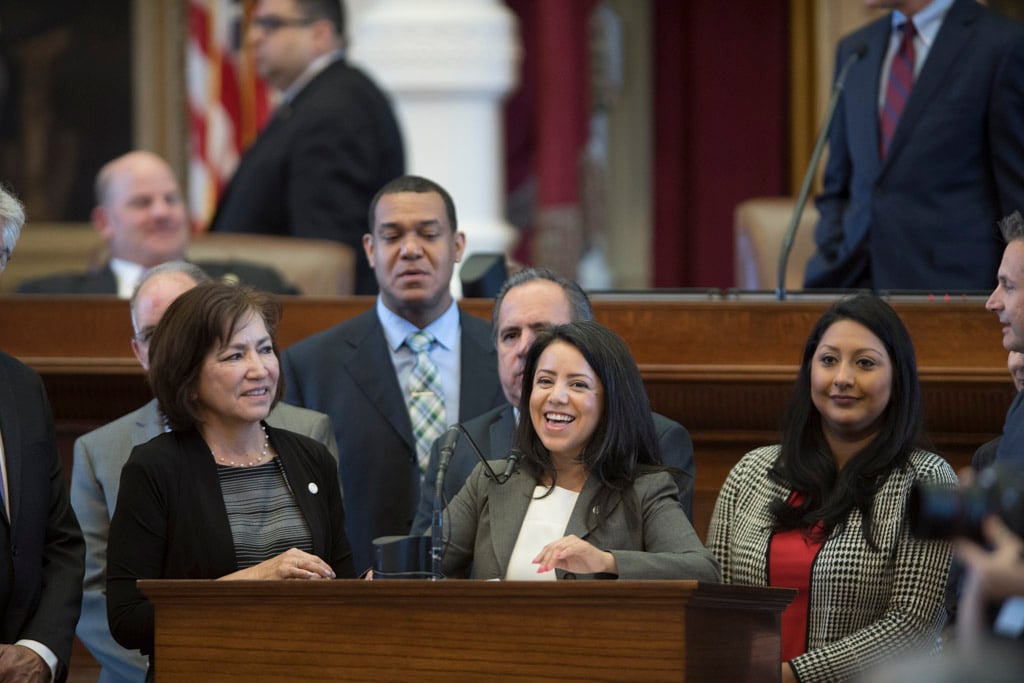New law lets Texas drivers help tackle the state's rape kit testing backlog
/https://static.texastribune.org/media/images/2013/07/31/IMG_7256.jpg)
Now on the Books

More in this series
State Rep. Victoria Neave agrees that everyday Texans shouldn't have to pass around a figurative hat to help rape victims get justice; footing the costly bill to test sexual assault kits should be the job of government, she says.
But since the state and localities seldom allocate enough money to test kits as they come in, the Dallas Democrat is hoping generous Texans will help.
A new law Neave authored will essentially crowdfund rape kit testing statewide. House Bill 1729, which took effect Sept. 1, directs the Department of Public Safety to allow Texans to contribute to that cause when applying for and renewing driver’s licenses and personal identification certificates.
Applications already ask whether folks want to donate $1 or more to a few other causes: veterans, the state’s organ and tissue registry and the Blindness Education Screening and Treatment Program. Beginning Jan. 1, applications will also allow donations to test sexual assault kits.
“There are women sitting for years sometimes waiting for justice,” said Neave, a freshman in the Legislature this year. “A dollar can go a long way toward bringing someone peace.”

Police gather such kits through hours-long, invasive exams of sexual assault victims, and they can cost anywhere from $500 to $2,000 to analyze. Forensic analysts and advocates say testing the kits is crucial to solving cases, finding serial rapists and acquitting the wrongfully accused.
The crowdfunding law, coupled with a new two-year budget appropriation of $4.2 million, is the state’s latest effort to reduce a backlog of untested kits that swelled for years.
In 2011, the Legislature enacted requirements that law enforcement agencies submit newly gathered kits for testing within 30 days — an ambitious target that’s not always met. Public safety officials reported a 20,000-kit backlog in August of that year, and lawmakers in 2013 injected $11 million into addressing it.
Through May of this year, the pre-2011 backlog still sat above 3,000, while thousands of new sexual assaults occur each year in Texas. In Austin this June, mold was found growing on the outside of hundreds of kits that had sat in police storage since the 1990s, according to the Austin American-Statesman.
“Seriously, this has been a problem emblematic of the devaluing of survivors of gender-based violence, really system-wide,” said Chris Kaiser, director of public policy for the nonprofit Texas Association Against Sexual Assault. “But the Legislature deserves a lot of credit” for addressing the problem when it came to light.
A fiscal note on Neave’s bill estimates crowdfunding would bring in about $1 million each year for testing, based upon what other programs featured on driver’s license applications take in.
“Any money is a help,” said Peter Stout, president and CEO of the Houston Forensic Science Center. “But the resourcing to do this stuff right and to get this stuff done in a time that makes a difference is substantial. And as a whole – across the country – we’re still short of where we need to be.”
Houston drew praise in 2015 for overcoming a backlog of more than 6,600 untested kits — a two-year effort that registered 850 hits in the FBI’s nationwide DNA database and led to charges against 29 people at the time.
Officials at the Houston Forensic Science Center, which typically receives 80 to 100 new kits each month, said it took a multimillion-dollar commitment from the city — on top of any help from the state — to tackle the problem.
The city recently fell slightly behind in its 30-day goal of turning around tests, partly due to new, more detailed FBI requirements for chemistry analysis, but it expects to soon be back on track.
“In terms of investigating, it’s huge that all these kits be tested,” said Amy Castillo, chief operations officer at the center. Rape survivors, she added, “deserve that their kit be processed.”
By the numbers
- Sexual assaults reported in Texas in 2015: 18,636
- Untested rape kits at least six years old: 3,067
- Fundraising from driver’s license applications in 2016:
Texas Veterans: $1,452,937
Glenda Dawson Donate Life Texas donor registry: $501,516
Blindness Education Screening and Treatment Program: $362,461
Source: Texas Department of Public Safety.
Information about the authors
Learn about The Texas Tribune’s policies, including our partnership with The Trust Project to increase transparency in news.
/https://static.texastribune.org/media/profiles/Jim_1.jpg)